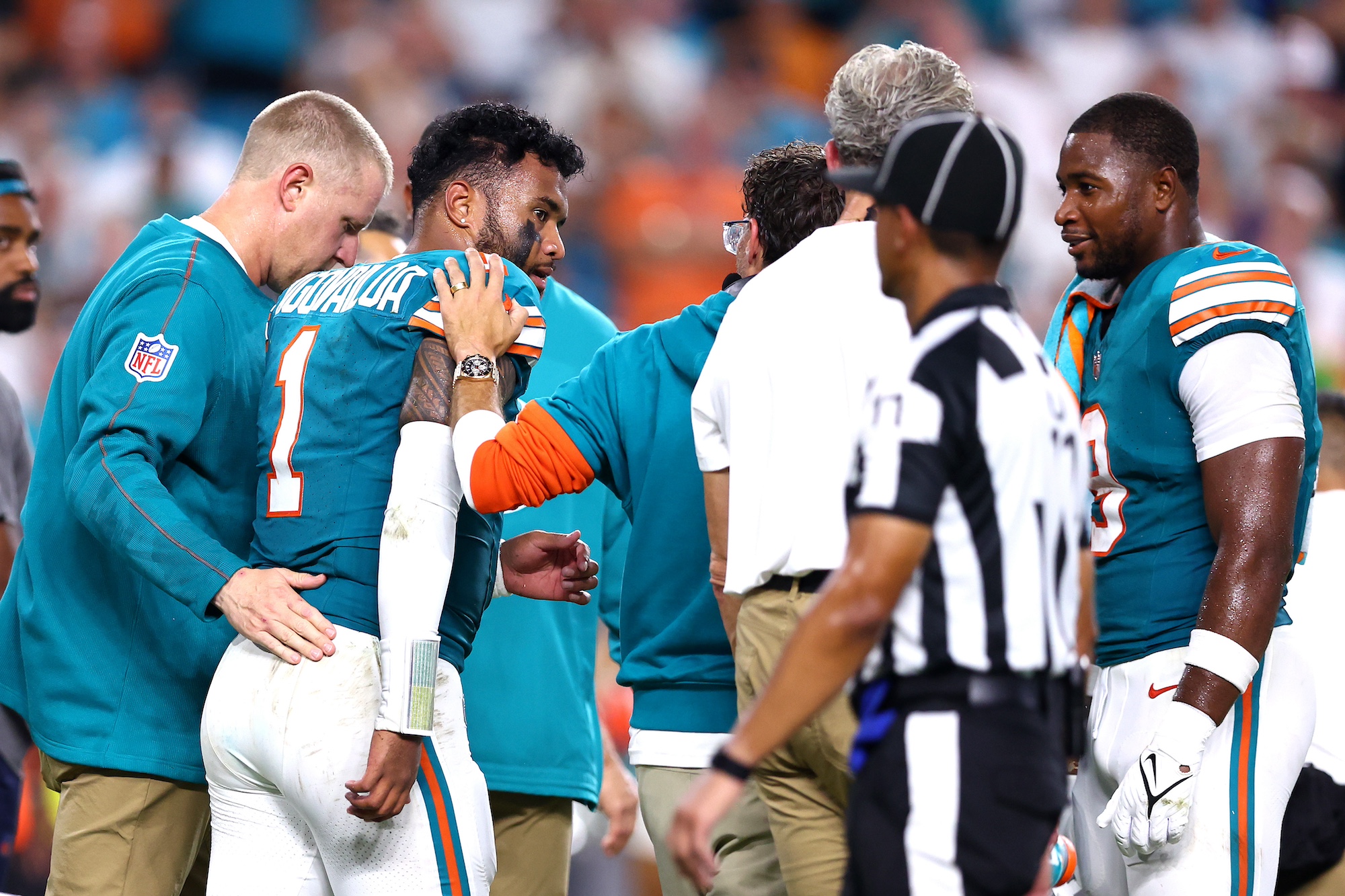It wasn't even a particularly crazy hit that did it. Tua Tagovailoa was scrambling, so committed to converting a fourth down that he never thought of sliding. Instead he lunged forward, his helmet making contact with Damar Hamlin's forearm, and then banging the back of his head on the turf. A normal football play. But normal football plays involve very strong men moving very fast, and Tagovailoa's brain, having suffered officially three previous concussions and in reality more than that, is especially susceptible to another one.
There was a time not all that long ago, when I started blogging, when I'd need to explain the fencing response: what it is, what it means. Not anymore. Football fans have seen it too many times—we've seen him do it too many times—while somber broadcasters cut to a commercial as the network's minor-key injury music plays. Tagovailoa instantly performed the fencing response after being tackled, and no one needed further explanation. Not again.
Instantly overshadowed was the Dolphins' 31-10 loss to the Bills, or even Tagovailoa's ugly three-pick game before the injury. It took doctors just six minutes to diagnose a concussion, we were told, which was roughly 5:55 longer than necessary. Tagovailoa eventually walked off the field under his own power, head coach Mike McDaniel kissing him on the forehead. He stayed in the locker room and talked to his teammates, remaining "in good spirits," McDaniel said.
"You can't help but feel for him," Josh Allen said after the game. Skylar Thompson, who will quarterback the Dolphins for as long as Tagovailoa is out, said it "makes me sick." McDaniel declined to speculate on how long that absence might be—every concussion and its recovery are different, and Tagovailoa will undergo a more in-depth examination today. That doesn't mean everyone else can't speculate, and the postgame panel, all former players, was united in their concern. Ryan Fitzpatrick said the Dolphins should immediately place Tagovailoa on injured reserve. Tony Gonzalez went further, saying, "It's time [for Tagovailoa] to move on."
It would almost have been better if it had been a spectacular hit. Two years ago, when Tagovailoa lost the back end of his season to multiple concussions, the Miami Herald interviewed leading CTE researcher Robert Cantu and asked him what a retirement scenario might look like. "If blows that do not normally produce symptoms now are producing concussion symptoms. If the intensity is considerably less and not expected to produce symptoms and are still producing symptoms, that’s the person at real risk," Cantu said. "That would be a bad situation and mean your career is over."
When I saw Tagovailoa's injury, my mind perhaps over-dramatically but immediately went to former hockey enforcer Stephen Peat, whose death at age 44 was announced earlier in the day. Peat only played 130 games in the NHL, but became immortal for one spectacular fight. By 2017 Peat, suffering from headaches and memory loss, was homeless, dealing with addiction to pain pills, and had a growing criminal record. The only thing between him and a formal CTE diagnosis was the fact that he was still alive. The NHL, after birthing too many stories like Peat's, has made strides in legislating fighting out of the league (and, more successfully, fighters). The NFL can't legislate out tackling. It can do and has done a lot to protect players at their most vulnerable, but there's no rule or penalty that can stop a quarterback from laying out to try to pick up that big first down. And if that quarterback is suffering concussions on unremarkable hits, it's hard to stop thinking about how it might end.






